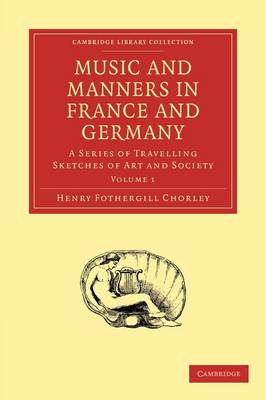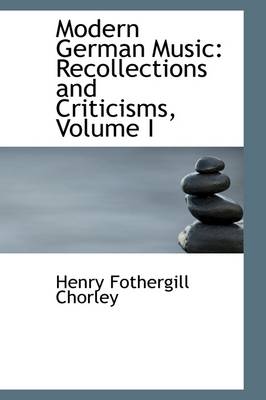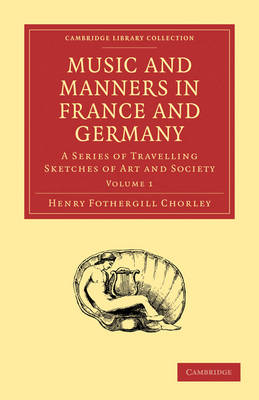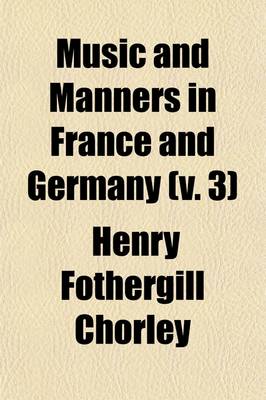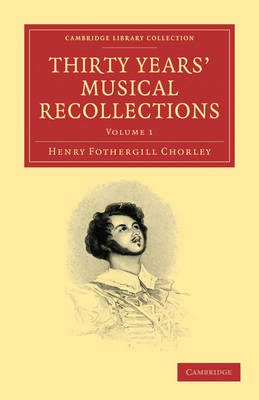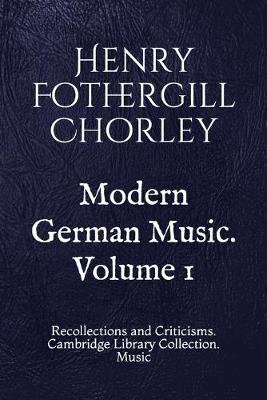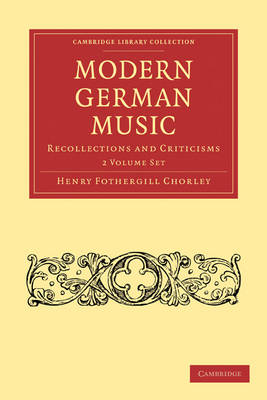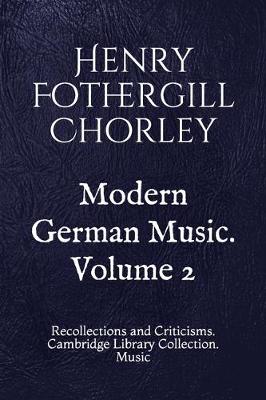Cambridge Library Collection - Music
4 primary works • 13 total works
Volume 1
Volume 1
Volume 2
Volume 2
Music and Manners in France and Germany 3 Volume Paperback Set
by Henry Fothergill Chorley
Music and Manners in France and Germany (Volume 3)
by Henry Fothergill Chorley
Thirty Years' Musical Recollections 2 Volume Paperback Set
by Henry Fothergill Chorley
Music and Manners in France and Germany: Volume 1
by Henry Fothergill Chorley

